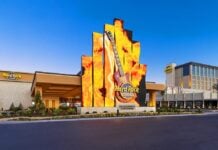by David Vialpando
Perusing the daily news reveals a level of general anxiety and anger not seen since long before the pandemic. Targeted acts of violence, assaults, road rage, and angry protest have been on the increase in our society, both nationally and internationally. The casino gaming industry is far from alone in feeling the effects of increased levels of societal anger. Casino patrons contacted for violating casino policy, suspected inebriation, or denial of service for legitimate reasons often resort to extended expressions of vitriol and even physical violence directed at casino personnel. Casino employees disciplined for various transgressions or who find themselves the subject of an adverse employment action frequently resort to threatened violence against their employer. Casino management and regulatory agencies across the country are working together to employ innovative strategies to ensure the safety of patrons, employees, and visitors to our casinos.
December 2019 marked the beginning of the COVID-19 pandemic. By March 2020, businesses (including casinos), schools, and most public gathering venues began shutting down across the country and around the world. According to the Centers for Disease Control and Prevention (CDC), by May 2020, the unemployment rate in the U.S. was 14.7%, the highest since the Great Depression. With 20.5 million people out of work, the hospitality, leisure (including casino gaming), and healthcare industries took the greatest hits overall. For people who must interact with each other, the CDC recommended guidelines for social distancing and mandatory masking.
According to the World Bank, the pandemic plunged the global economy into the worst recession since World War II. By March 2021, after 760 million COVID infections and 6.9 million deaths, most businesses (including casinos), schools, and public gathering places resumed operations with safety precautions in place. Since then, as COVID vaccinations have risen and COVID cases have dropped, a greater number of businesses have relaxed COVID safety precautions, but with supply chain issues and hiring challenges, the return to normal appears to be somewhere far in the future. COVID statistics, vaccines, investigations, and lawsuits continue to dominate the news and further fatigue an exhausted society.
For most people in the world, notwithstanding natural disasters, famine, and war, the COVID pandemic was the most impactful single event in their lives. Those who lost family and friends due to the virus were impacted the most, but loss of employment, setbacks in education, isolation and the loss birthdays, weddings, anniversaries, and other celebrations that define our species as social and interdependent gave rise to anxiety, depression, and loneliness.
One would think that once COVID infections subsided and people began returning to work and school, that the climate of anxiety and uncertainty which persisted across the world for over a year would also subside. But those who study the effects of sustained trauma, like that experienced by our armed forces personnel serving in theatres of war, understand that post COVID stress disorder, like post traumatic stress disorder (PTSD), is real and crippling. After three years enduring the pandemic, with its constant uncertainty and indiscriminate grief, studies have shown increases in stress and anxiety among U.S. adults, with many experiencing symptoms of PTSD. According to Dr. JoAnn Difede, attending psychologist at New York-Presbyterian/Weill Cornell Medical Center, in an article in the magazine Health Matters, an increase in feelings of moodiness, difficulty sleeping and concentrating, irritability, and anxiety, among other symptoms, is to be expected for those suffering from post COVID stress disorder.
In extreme cases, anxiety and stress in some individuals can result in acts of violence directed at others. The U.S. Secret Service recently released its report, Mass Attacks in Public Spaces: 2016-2020, which documents the increase in targeted attacks of violence across the country. The frequency and devastation of these acts occurring at public gatherings, schools, and businesses, has reached epidemic proportions.
It is against the backdrop of the apparent rise in society’s emotional temperature that casinos and Tribal Gaming Regulatory Agencies (TGRAs) are taking steps to protect patrons, employees, and visitors. Most casino patrons visit tribal casinos to enjoy entertainment in a fun and relaxed environment, which is the goal of every casino operator. Occasionally, patrons become embroiled in disagreements with other patrons or confrontational with casino staff contacting them for rule violations, unacceptable behavior, or intoxication. Since casinos reopened from their COVID hiatus, many report that some patrons are more prone to abusive verbal attacks and threats of physical violence. Casinos are investing in training staff in verbal de-escalation techniques and emotional intelligence. De-escalation teaches staff to remain clam, manage staff response to aggressive and confrontational behavior, maintain professionalism and prevent physical confrontation. Emotional intelligence training empowers casino staff to understand and manage their own emotions, recognize and influence the emotions of confrontational individuals, and be prepared to step aside and allow another staff member to interact with the patron when emotions continue to rise. Strategic involvement by uniformed casino security officers and law enforcement is employed to prevent physical confrontation. Timely notification of casino surveillance operators ensures that confrontations are adequately recorded, and additional personnel resources are requested when necessary to protect staff members and patrons.
Many casinos have implemented strict no weapons policies for patrons and visitors. Weapons detection technology is often installed at casino entry points providing a touchless means of keeping firearms, edged weapons, and dangerous implements out of the casino. Casinos must recognize that employing this technology requires clear and unambiguous policies and guidelines for staff. Invariably, some patrons asked about weapons possession when the system alerts will protest, respond with anger, and claim discrimination. A few staff members will ignore or become distracted and miss alerts, allowing patrons to circumvent the system or they may attempt to re-enter by another means when turned away. Security coordination with the surveillance department is crucial to maximizing the effectiveness of the selected weapons detection system.
Establishing a casino safety board or committee that meets on a recurrent basis to review casino risk assessment evaluations and public health and safety initiatives ensures that industry standard measures are consistently implemented, community safety risks potentially impacting the casino are reviewed and considered, and that safety measures are coordinated among stakeholders. Safety board members should include representatives from casino management, security, surveillance, TGRA, and law enforcement.
Some casino employees may experience anxiety and stress that manifests in aggressive confrontations at work involving supervisors and colleagues. In many cases, disciplinary action and even employment termination may result. Casino employee hiring challenges result in frequent and large-scale recruitment efforts. A portion of casino employee applicants denied employment or regulatory agency licensing for legitimate reasons may become aggressive and threaten casino human relations and TGRA personnel.
The formation of a casino threat assessment committee composed of representatives from casino management, human relations, tribal gaming regulatory agency, security, surveillance, law enforcement, casino legal counsel, and behavioral health professionals is a means of dealing with threats to personal safety. The Association of Threat Assessment Professionals (ATAP) is an excellent place to start in developing guidelines for the casino threat assessment committee. The committee’s responsibility is to meet on an as needed basis to review threatening patrons, disgruntled employees, and others who pose a potential danger to the safety of the casino. A threat assessment is conducted, and various strategies explored to address the potential threat.
Due to the general increase in stress and anxiety in society, much of it resulting from the pandemic, casino management and TGRAs have invested in robust employee assistance programs and behavioral health services for employees. Investing in the mental health and well-being of the workforce will pay dividends in the form of engaged, loyal, and capable employees. The goal is to increase safety by lowering the emotional temperature.
David Vialpando is Executive Director of the Pokagon Band Gaming Commission and Vice-Chairman of Tribal Gaming Protection Network. He can be reached by calling (269) 926-5485 or email [email protected].














































